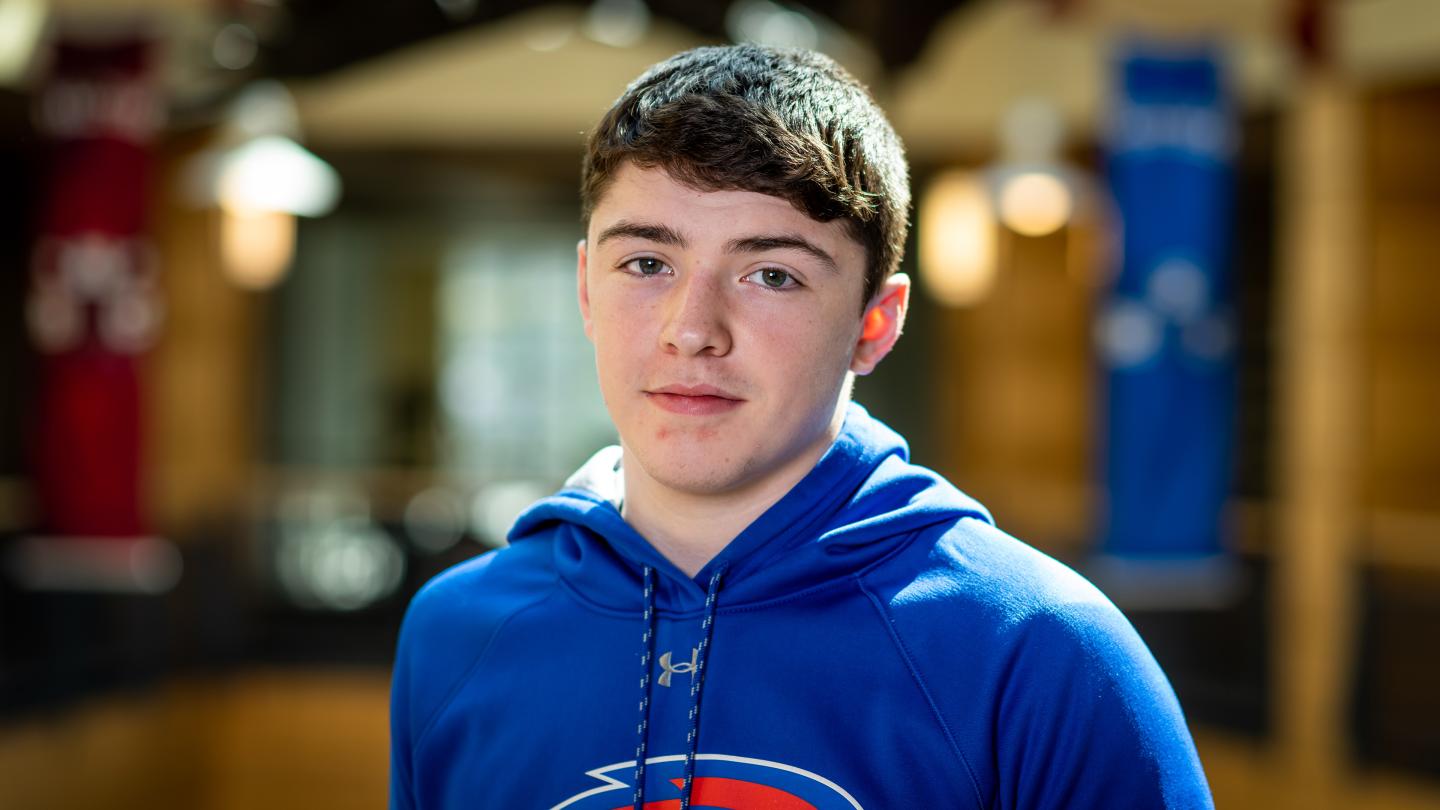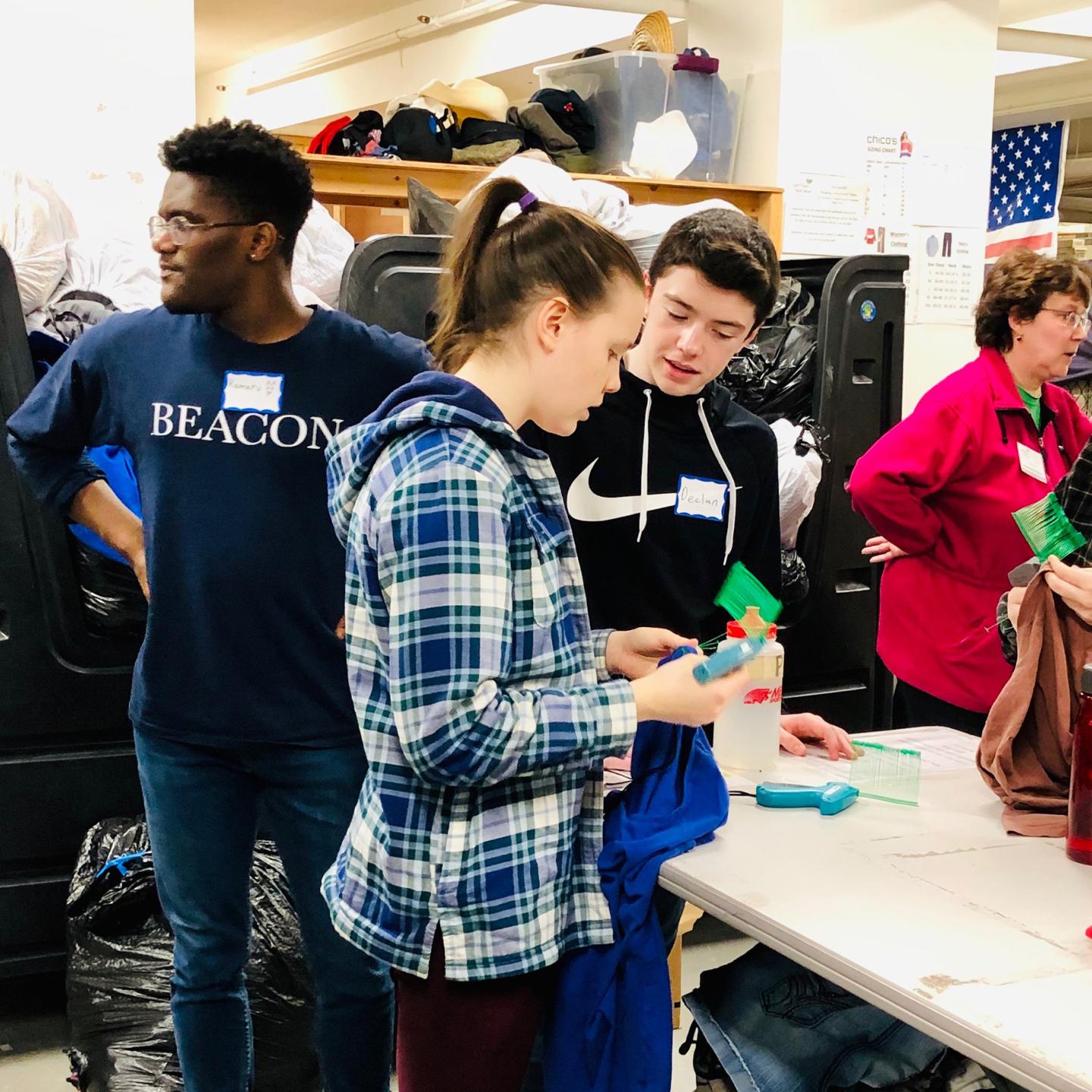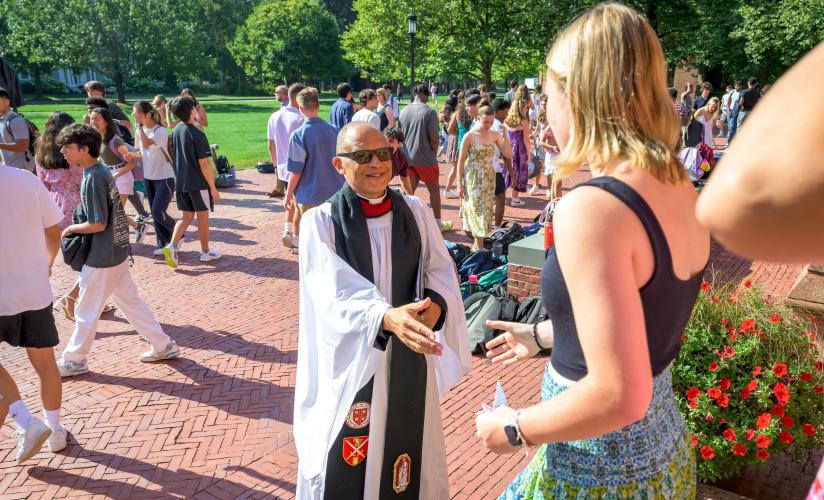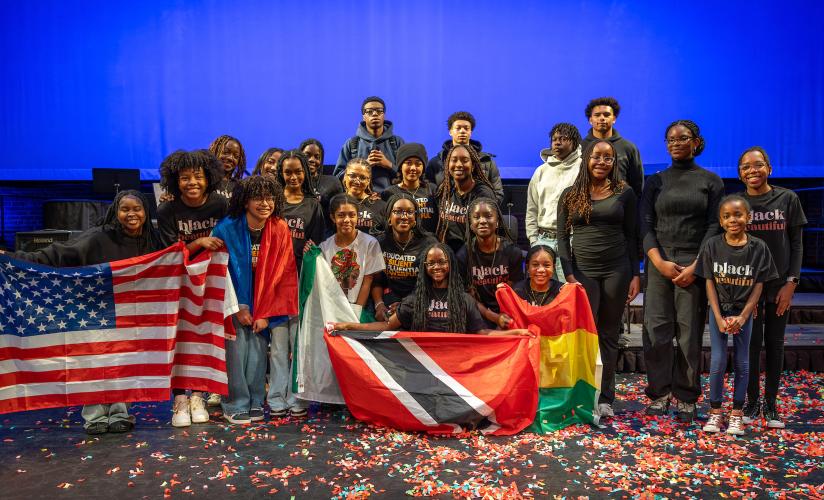

For some SPS students, spring break is an opportunity to help those in need.
BY IAN ALDRICH
Declan Casey ’22 wasn’t blind to the fact that homelessness and food insecurity were issues for his home state of New Hampshire. But it wasn’t until his second year at St. Paul’s School, when he did a spring break service-learning project with Families in Transition (FIT), a Manchester-based nonprofit that provides hunger relief and emergency shelter, that he says he gained a clearer understanding of just how tenuous life can be for many families.
“I grew up in a family that did a lot of community service,” says the Sixth Former. “My mother and sister baked for a food pantry [here] in Concord, we did a lot with our church, but I didn’t realize just how big these problems are [until I volunteered at FIT]. It meant a lot be able to help out and meet the different kids and families who are dealing with this stuff, to put myself in their shoes and get a little understanding of what brought them there. When you can’t put a roof over your head, it can be really hard to have even just the basic necessities. That was important to see.”
Casey isn’t alone. For the past four years SPS has collaborated with FIT to bring 10 student volunteers to the organization’s headquarters. The experience runs the first week of spring break and puts students right at the center of the nonprofit’s work, from organizing inventory at the food pantry and serving meals at the community kitchen to sorting donations at the thrift shop and dressing up building spaces to make them feel more welcoming. At the end of the week, the group throws a party for the residents and staff.
“For me the connections you make are really important,” says Casey. “You’re meeting these families and they know they’re being supported. It’s a chance to hang out with the kids, playing with them, making them laugh — you can see the parents relax and just be happy.”
For SPS students it’s a service opportunity with different dimensions. The session begins that first Sunday of break, reading stories and watching films that take on the issues they’re about to be immersed in. Throughout, there are daily group discussions and journal sessions while critical real-world scenarios break down such things as trying to buy a week’s worth of family groceries on a limited fixed budget. The end result, says Julie Lynch, FIT’s volunteer operations manager, is a service opportunity that gives students a deeper perspective on not just the myriad issues that can push a family into need, but the toll those issues can take on day-to-day life.

Education and community partnerships are critical to the work that Families in Transition does. And working with St. Paul’s students is a way for us to help educate some of the young people in our community and help to provide experiences that help them to broaden their world view, even within the Granite State.”
Community service has always been an important ingredient in the St. Paul’s School culture. Over the years, for example, SPS students have worked closely with Concord-area schools in a variety of mentoring and tutoring roles. For the service-learning opportunities that comprise the first week of the School’s spring break, SPS has offered a wide array of experiences, from building homes in different parts of the country with Habitat for Humanity to working with disadvantaged youth in the Washington, D.C., area.
But during the last half decade St. Paul’s has placed a particular focus on using these service sessions to work with local groups and populations. That includes the FIT collaboration but it also has included a program in which students work with immigrants and refugees in the Concord and Manchester area.
“We’ve done some really interesting trips in the past but with [these local projects] the kids can see the impact they’re making,” says Laura Hrasky, a math teacher and service trip co-leader. “We are a New Hampshire school, we have a number of kids who come from New Hampshire — this is our community and it’s important that we try to make a difference. These are issues that can go unnoticed. But by showing students that these things aren’t that hidden and that even the little things can make a big difference, it can be life changing. It stays with them, they talk to others they know about what they’ve learned. I’ve had a couple of students who’ve gone on to college who’ve made this a part of what they focus on in with their studies.”
The experience certainly stuck with Declan Casey, whose involvement in community service at SPS includes mentoring elementary school students with the Friends Youth Mentoring Program and serving as secretary for the Missionary Society, the School’s oldest and largest student-run organization. He so valued his experience with FIT that first year, he signed on again for a second week the following spring break. Recently, he met with a new crop of FIT volunteers to share his experiences.
“As students at St Paul’s we are given a lot of opportunities and we’re blessed with a lot of amazing things,” he says. “Going on these community service trips allows you to get the perspective of other people who may not have the same kind of opportunities we have. Once you step outside of things you can see firsthand some of the problems and issues you might be missing. And you can help people and maybe make their life a little better. Getting this kind of opportunity can open your eyes and change how you look at the world around you. That’s really gratifying.”



